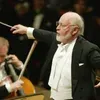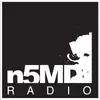Modern composition Live Radio Stations
Radio Stations
Choose a Genre
Modern Composition: A Journey into the Evolution of Contemporary Music
Modern composition is a genre that has grown and transformed throughout the 20th and into the 21st century, offering an experimental and innovative approach to music. This genre embraces a diverse array of styles, techniques, and influences, often pushing the boundaries of traditional music-making. Through radio stations dedicated to modern composition, listeners are given the opportunity to delve into this dynamic and ever-evolving musical world, exploring everything from avant-garde experimentalism to minimalist repetition and electronic soundscapes.
The Essence of Modern Composition
At the heart of modern composition is the desire to explore new sounds, textures, and timbres. Composers in this genre often break free from traditional musical norms, incorporating a wide variety of elements into their work. These may include electronic instruments, unconventional instrumentation, and even found objects, all used to create unique and unexpected sonic experiences. It’s this open-minded approach to sound that defines modern composition, as composers seek to challenge the conventional and venture into uncharted musical territory.
What sets modern composition apart from earlier musical eras is its focus on innovation. Rather than adhering to well-established forms like sonatas or symphonies, modern composers often experiment with new structures and forms that are designed to push the boundaries of music. This approach can result in compositions that are unconventional, unpredictable, and at times, difficult to define, but it’s precisely this willingness to break from tradition that makes modern composition so captivating and vital.
Key Composers and Influences
Modern composition has been shaped by a wide range of influential composers, many of whom have become legends in the contemporary music world. Figures like John Adams, Philip Glass, and Steve Reich have been pioneers in creating works that challenge both the listener and performer. Their compositions are known for their minimalist repetition, intricate rhythms, and complex harmonic structures. These composers’ works, often characterized by a focus on time, rhythm, and texture, have laid the foundation for modern composition and continue to inspire emerging composers today.
However, the genre is far from limited to these iconic figures. Radio stations that specialize in modern composition also serve as a platform for emerging composers, offering a stage for new voices to be heard. This ensures that modern composition remains a dynamic genre, continuously evolving and giving rise to fresh perspectives and innovative ideas in the world of music.
Exploring the Diversity of Modern Composition
One of the most exciting aspects of modern composition is the sheer variety of styles and influences it encompasses. From the pulsating rhythms of minimalism to the expansive and experimental soundscapes of electronic music, the genre is incredibly eclectic. Listeners can encounter orchestral grandeur juxtaposed with avant-garde experimentation, or deeply electronic works layered with samples and processed sounds. The genre is fluid and expansive, offering a sonic landscape that is constantly evolving and defying expectations.
Modern composition also thrives in its experimental nature, allowing composers to explore unconventional sounds and concepts. Whether it's exploring the use of silence, incorporating field recordings, or manipulating sound in innovative ways, the genre is a playground for creative possibilities. As composers and performers continue to push the envelope, the boundaries of what is considered "music" become increasingly blurred.
A Platform for Engagement and Discovery
Beyond the music itself, radio stations dedicated to modern composition offer a wealth of opportunities for listeners to engage with the genre on a deeper level. Many stations provide in-depth discussions, interviews with composers and performers, and analyses of specific works, helping listeners gain a better understanding of the music and its broader cultural and historical context. These stations not only expose listeners to new sounds but also foster an appreciation for the intellectual and artistic processes behind modern compositions.
For anyone interested in contemporary music, modern composition radio stations are an invaluable resource. They offer a window into a constantly changing world, where new ideas and fresh musical voices are shaping the future of music.
Conclusion: The Cutting Edge of Contemporary Music
Modern composition is at the forefront of musical innovation, offering a platform for composers to challenge conventions and explore new sonic territories. Radio stations that specialize in this genre provide listeners with a chance to experience the cutting edge of contemporary music, offering everything from minimalist repetition to avant-garde experimentation. Whether you're a longtime listener or someone just beginning to explore modern composition, these stations offer an exciting and immersive experience that continues to evolve and inspire.
As modern composition continues to push boundaries and break new ground, it remains an essential genre for those who seek to discover the next frontier of music and engage with the ideas shaping the future of sound.
Modern composition is a genre that has grown and transformed throughout the 20th and into the 21st century, offering an experimental and innovative approach to music. This genre embraces a diverse array of styles, techniques, and influences, often pushing the boundaries of traditional music-making. Through radio stations dedicated to modern composition, listeners are given the opportunity to delve into this dynamic and ever-evolving musical world, exploring everything from avant-garde experimentalism to minimalist repetition and electronic soundscapes.
The Essence of Modern Composition
At the heart of modern composition is the desire to explore new sounds, textures, and timbres. Composers in this genre often break free from traditional musical norms, incorporating a wide variety of elements into their work. These may include electronic instruments, unconventional instrumentation, and even found objects, all used to create unique and unexpected sonic experiences. It’s this open-minded approach to sound that defines modern composition, as composers seek to challenge the conventional and venture into uncharted musical territory.
What sets modern composition apart from earlier musical eras is its focus on innovation. Rather than adhering to well-established forms like sonatas or symphonies, modern composers often experiment with new structures and forms that are designed to push the boundaries of music. This approach can result in compositions that are unconventional, unpredictable, and at times, difficult to define, but it’s precisely this willingness to break from tradition that makes modern composition so captivating and vital.
Key Composers and Influences
Modern composition has been shaped by a wide range of influential composers, many of whom have become legends in the contemporary music world. Figures like John Adams, Philip Glass, and Steve Reich have been pioneers in creating works that challenge both the listener and performer. Their compositions are known for their minimalist repetition, intricate rhythms, and complex harmonic structures. These composers’ works, often characterized by a focus on time, rhythm, and texture, have laid the foundation for modern composition and continue to inspire emerging composers today.
However, the genre is far from limited to these iconic figures. Radio stations that specialize in modern composition also serve as a platform for emerging composers, offering a stage for new voices to be heard. This ensures that modern composition remains a dynamic genre, continuously evolving and giving rise to fresh perspectives and innovative ideas in the world of music.
Exploring the Diversity of Modern Composition
One of the most exciting aspects of modern composition is the sheer variety of styles and influences it encompasses. From the pulsating rhythms of minimalism to the expansive and experimental soundscapes of electronic music, the genre is incredibly eclectic. Listeners can encounter orchestral grandeur juxtaposed with avant-garde experimentation, or deeply electronic works layered with samples and processed sounds. The genre is fluid and expansive, offering a sonic landscape that is constantly evolving and defying expectations.
Modern composition also thrives in its experimental nature, allowing composers to explore unconventional sounds and concepts. Whether it's exploring the use of silence, incorporating field recordings, or manipulating sound in innovative ways, the genre is a playground for creative possibilities. As composers and performers continue to push the envelope, the boundaries of what is considered "music" become increasingly blurred.
A Platform for Engagement and Discovery
Beyond the music itself, radio stations dedicated to modern composition offer a wealth of opportunities for listeners to engage with the genre on a deeper level. Many stations provide in-depth discussions, interviews with composers and performers, and analyses of specific works, helping listeners gain a better understanding of the music and its broader cultural and historical context. These stations not only expose listeners to new sounds but also foster an appreciation for the intellectual and artistic processes behind modern compositions.
For anyone interested in contemporary music, modern composition radio stations are an invaluable resource. They offer a window into a constantly changing world, where new ideas and fresh musical voices are shaping the future of music.
Conclusion: The Cutting Edge of Contemporary Music
Modern composition is at the forefront of musical innovation, offering a platform for composers to challenge conventions and explore new sonic territories. Radio stations that specialize in this genre provide listeners with a chance to experience the cutting edge of contemporary music, offering everything from minimalist repetition to avant-garde experimentation. Whether you're a longtime listener or someone just beginning to explore modern composition, these stations offer an exciting and immersive experience that continues to evolve and inspire.
As modern composition continues to push boundaries and break new ground, it remains an essential genre for those who seek to discover the next frontier of music and engage with the ideas shaping the future of sound.

